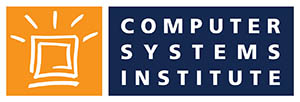Looking to launch a successful career in information technology (IT)? Whether you’re an international student entering the job market or figuring out what career path you want to follow in life, obtaining a CompTIA Network+ certification could open the doors to exciting opportunities. Most businesses depend heavily on technology, and professionals who can manage networks and resolve technical issues are always in demand. This certification validates essential networking skills and positions you for numerous entry-level roles.
Set yourself up for success, and get an idea of what you want to look for with our list of jobs you can get with a CompTIA Network+ certification.
1. Network Support Specialist
A network support specialist assists with maintaining and troubleshooting IT networks. They help companies stay connected by resolving issues related to network performance, connectivity, or hardware.
If you enjoy solving technical problems and digging into system diagnostics, this role might be a great fit for you. You’ll often work alongside network engineers or IT administrators, gaining hands-on experience in networking tools and technologies. This role is a good entry-level job in IT, allowing you to grow your knowledge of networking hardware and software while building a foundation for more advanced careers.
2. IT Support Specialist
IT support specialists help end users resolve computer and network issues over phone calls, Internet chat functions, or on-site visits. This job is ideal for someone with strong communication skills who enjoys working directly with people to solve technical issues. Whether assisting with connectivity problems or troubleshooting a malfunctioning router, you’ll keep systems running smoothly. Employers value the CompTIA IT certifications because they prove your ability to troubleshoot network-related challenges.
3. Network Administrator

If you’re passionate about managing the inner workings of an IT network, becoming a network administrator is a rewarding job. Network administrators take charge of configuring, monitoring, and maintaining an organization’s network infrastructure.
You’ll be responsible for keeping routers, switches, and servers running at peak efficiency. You’ll also handle upgrades, resolve network outages, and implement security measures to protect the company’s data. The CompTIA Network+ certification equips you with the networking fundamentals to succeed in this role. Over time, you can develop more advanced skills to position yourself for leadership roles in IT infrastructure management.
4. System Administrator
A system administrator supervises the technology that keeps an organization operational. While network administrators focus on infrastructure, system administrators take a broader approach, managing both hardware and software systems.
System administrators have many duties, from deploying new applications to supporting efficient data backups, in IT departments. They often collaborate with network administrators to work on integration between systems and networks.
This role is perfect for people with an interest in technology’s operational side. With your certification, you’ll have foundational knowledge of networking concepts that are critical in this combined system management role.
5. Computer Network Technician
If you’re looking for a hands-on, practical role, consider becoming a computer network technician. This job involves installing, executing, and maintaining IT hardware, such as servers, computers, and networking equipment.
The CompTIA Network+ certification prepares you for the technical responsibilities involved, such as configuring network devices and resolving connectivity problems. Computer network technicians often work on-site, directly interacting with the technologies that keep businesses connected. This role is a great match for people who enjoy working with hardware and analyzing network performance.
6. IT Consultant
An IT consultant provides expert advice to businesses on implementing and optimizing technology for their unique needs. While strategic in nature, this job often requires having a solid foundation in networking fundamentals.
IT consultants frequently guide clients on setting up networks, deploying secure environments, or improving their IT infrastructure’s efficiency. With your education, you’ll possess the knowledge to give actionable advice to small businesses and startups. This job is ideal for someone who enjoys analyzing problems, thinking strategically, and tailoring solutions to meet business goals.
7. Network Engineer (Entry-Level)
If you’re aiming for a more technical position, jumping into the role of an entry-level network engineer is an excellent start. Network engineers design and implement complex IT networks, ensuring reliable connectivity and optimal performance.
While this job may seem advanced, starting at the entry level allows you to ease into the role and grow your skills over time. The CompTIA Network+ certification demonstrates your grasp of networking protocols, hardware, and configurations, which are crucial in engineering networks that support modern businesses.
8. Cybersecurity Analyst
The booming field of cybersecurity welcomes professionals with strong networking skills. A cybersecurity analyst protects an organization’s network from cyber threats by identifying vulnerabilities and implementing defenses.
Many networking concepts, like firewall configuration, virtual private networks (VPNs), and intrusion detection, are key to securing systems. The certification is a valuable foundation for entering this role, helping you expand into cybersecurity certifications. If you’re detail-oriented and passionate about safeguarding systems, cybersecurity could be an exciting direction for you!
9. Help Desk Technician

Help desk technicians are the primary support teams in IT departments, addressing a wide range of user issues, from troubleshooting network connectivity problems to resetting devices. This role is an excellent starting point for international students and recent graduates exploring their first IT jobs. Employers often value the CompTIA Network+ certification because it validates your problem-solving and technical skills.
A position as a help desk technician allows you to grow your expertise and can lead to more specialized roles in the future.
10. Field Technician
Technical acuity meets day-to-day variety for field technicians. These IT professionals install, maintain, and repair networking and IT equipment directly at customer sites.
This job is ideal for people who enjoy working with their hands and do well in dynamic environments. The practical skills they gain are essential for troubleshooting routers, testing network connections, and configuring new hardware. Field technicians support the seamless operation of countless business systems.
Why Choose the CompTIA Network+ Certification?
The CompTIA Network+ certification stands out because of its versatility. It’s not confined to any one platform or vendor, making it applicable across industries and geographic locations. Additionally, it’s the ideal choice for international students and recent graduates looking to build a global career.
Many companies view this certification as a benchmark for networking skills, adding weight to your resume and helping you stand out in the IT job market. Earning a certification can pave the way to a fulfilling career in information tech. These 10 jobs you can get with a CompTIA Network+ certification are just a few career paths you can take. What job will you seek after graduation?
If you’re ready to begin your IT education journey, Computer Systems Institute offers 1-year certificate programs that lead to certifications such as the CompTIA Network+ (N10-008) Certification. Learn how we can help you gain hands-on training so you’ll be ready for your job on day one. Start building your future today with resources, training, and support!







